Federation Presents 2021 Community Awards
Eight volunteers are recognized by Jewish Federation of Greater Atlanta during annual meeting.
The Atlanta Jewish community “is a melting pot,” Eric Robbins, CEO and president of the Jewish Federation of Greater Atlanta, stated at its virtual annual meeting June 2. Although the community still has its core families that have “always been pillars of the community, everyone else is from somewhere else. And that is what makes this community unique.” He was referring to the Federation’s 2021 community award winners, honored at the meeting.
Dismissing the idea of conducting a demographic study of the local Jewish community to place a number and location on those Jews, Robbins acknowledged that “we’re guessing numbers and where Jews live.” He said he knows it’s more than 125,000 and “closer to 150,000,” and that they concentrate in clusters such as Sandy Springs, “but I’m not sure much would change in our approach” if a study was conducted. “There are a ton of unaffiliated Jews; most are not affiliated.”
He said that the Federation’s challenge is to help the “broadest swath of people … identify Jewishly. We live in a world that is quite divisive. In the Jewish community, it’s in politics and level of observance. So how do we build a sense of what we agree on, that we’re one people and not people of many different tribes?”
In announcing the latest award winners at the Federation’s annual meeting, the community’s umbrella organization succeeded in heralding the pillars of the Atlanta Jewish world – because the awards are named after several – as well as focusing on both the younger generation and some newcomers. All the award winners were chosen democratically, and with difficulty, Robbins said. “We had 15 times the number of nominees this year than before. People really stepped up more” during the pandemic.
Jennifer Korach, The Gerald H. Cohen Community Development Award
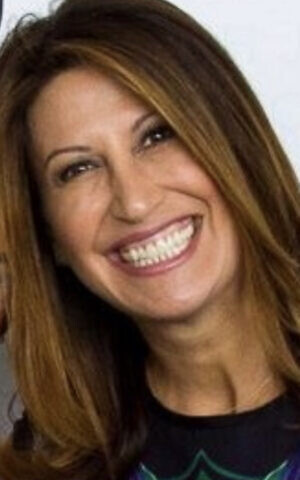
As an award winner, Jennifer Korach represents both an Atlanta core family, while being a newcomer. The Gerald H. Cohen Community Development Award “celebrates outstanding community involvement by a non-native Atlantan that has lived here less than seven years,” according to the Federation. Primary consideration in choosing the winner of this annual award is the person’s level of Federation activity.
In August it will be three years since Korach moved to Atlanta from Cleveland, Ohio. There she was on the local Federation board of trustees and a “million committees over the years.” She told the AJT that she was representing Cleveland with the Jewish Federations of North America and hadn’t completed her term when she moved to Atlanta. “Atlanta asked me to finish my term representing Atlanta. I’m just now cycling off,” she said.
Despite that JFNA representation, Korach said her involvement in the Atlanta Jewish community got off to a slow start because of the COVID pandemic. “I’m still getting my feet wet,” she said. From her perspective, the biggest challenge facing her new community is that it is so spread out. In Cleveland, she explained, the Jewish community numbers only about 80,000, but 90 percent live within seven miles of the Federation. Also in Cleveland, most Jews are either born there or married to someone born there. “One couldn’t be invisible in the Cleveland Jewish community,” she said, unlike in the Atlanta Jewish world.
But she sees the size and scatteredness of the Atlanta Jewish community as a strength. Calling Cleveland’s Jewish community insular and a shtetl, Korach said the Atlanta Jewish community has a “greater depth and breadth which gives us great power. We need to leverage that power.”
According to Korach, the fact that she comes from a Federation “where the old model still works, I appreciate the innovation” prevalent in the Atlanta Jewish community.
David Welsher, The Marilyn Shubin Professional Staff Development Award
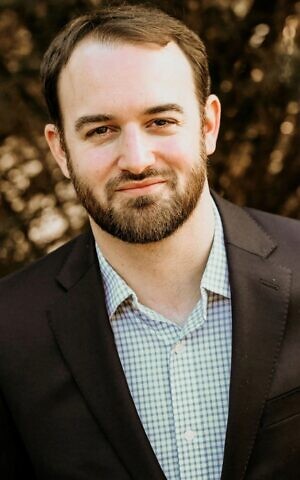
Another newcomer to Atlanta is David Welsher who was recently named associate head of The Epstein School, effective this fall. He won the Marilyn Shubin Professional Staff Development Award, whose purpose is to “invest in the development of our rising Jewish professionals, both for their own personal growth and for the advancement of the Jewish professional field across the community,” the Federation reported.
As the winner of this award, Welsher receives a stipend up to $3,500 “to be used for the advancement of professional studies.” The nominating agency will also receive a stipend of $1,500 to be used for agency-wide professional development. The award stipulates that the recipient has to have worked in Jewish communal service for more than three years and less than 10. Welsher fits that requirement perfectly, as he is serving in his fourth academic year at Epstein.
Welsher grew up in a very small Jewish community. “I was playing in church league basketball as the only Jewish person” quietly and respectfully participating in the ‘Lord’s Prayer’ before the games, he recalled. “I didn’t want to stick out, but I didn’t recite it.”
That feeling of being an outsider contrasts with The Epstein School environment that includes “Hebrew everywhere and prayers every day. The kids here get to be so excited about being Jewish,” he exclaimed.
Noting that all Jewish communities are relatively small, Welsher emphasized the “need to open up our arms and accept everyone’s ideas. We all fall under the Jewish umbrella. We need to continue to use all of our resources and put egos aside and understand we’re all Jewish people.”
Jada Garrett and Adam Hirsch, Abe Schwartz Young Leadership Award
Two people were named recipients of the Abe Schwartz Young Leadership Award. This award “celebrates members of the community under the age of 40 with considerable community involvement and significant leadership potential,” the Federation explained.
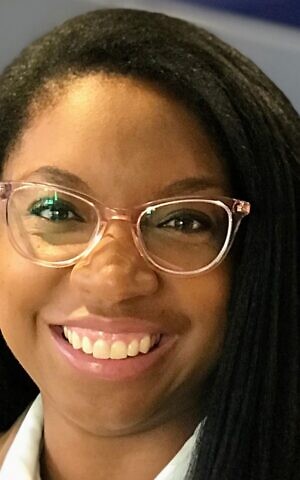
Jada Garrett told the AJT that she became involved, as a Black Jew, in the community because “I need to see change. And I needed to be part of that change, a catalyst for the change. The Jewish community is my community and in the words of Mahatma Gandhi, ‘be the change you wish to see in the world’.” She was also propelled by her young daughter. “I never want her to feel ‘othered’ or out of place in the Jewish community. That is where she should feel most comfortable and at home.”
To accomplish that, Garrett wants the Atlanta Jewish community to “focus on initiatives that foster diversity, equity and inclusion, moving Jewish Atlanta to a community of belonging.”
Garrett said she’s particularly honored by winning this award in Atlanta, “the cradle of the civil rights movement. I hope this shows other cities that the Atlanta Jewish community is serious about investing in belonging initiatives, where Jews of Color are acknowledged, seen, heard, respected and represented. My true wish in receiving this award is that it will open the door for other Jews of Color.”
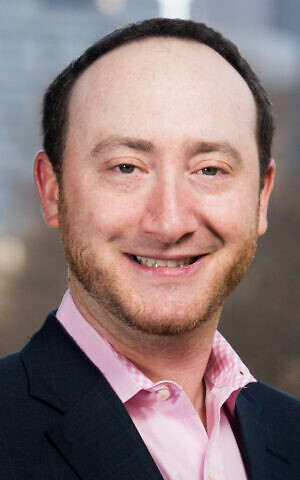
The other “under 40” award winner is probably more well known in the Atlanta Jewish community. Adam Hirsch is on the steering committee of the Atlanta Jewish Film Festival. His most recent documentary shown at the festival, “Atlanta: The City Too Busy to Wait,” documented the story of how the local Jewish community responded to the challenges posed by the pandemic in 2020.
Hirsch sees the community’s next big challenge as keeping the momentum achieved during the pandemic going. “We came together in unthinkable and positive ways. We came together virtually and remained strong. I hope that people don’t just stay behind their computer screens and show up in person to help out in the community.”
Like Welsher, Hirsch grew up in a small Jewish community, in Nashville. “I wasn’t always fortunate to be surrounded by a large group of Jews my age,” he said. “We had to learn ways to be vocal and advocate for the needs of the Jewish community. I wanted to take that with me when I moved to Atlanta.”
As part of his volunteering, Hirsch has served the American Jewish Committee and Ahavath Achim Synagogue and is a former board member of the Marcus Jewish Community Center of Atlanta and Jewish Family & Career Services.
Lauren Harris, Mary & Max London People Power Award
Lauren Harris has also been a board member of JF&CS, in her case, for over 10 years. There she created The Artist Collective, an innovative, volunteer-led and-run inclusion program bringing community artists twice a month into IndependenceWorks, JF&CS’ day services program for people with intellectual and developmental disabilities.
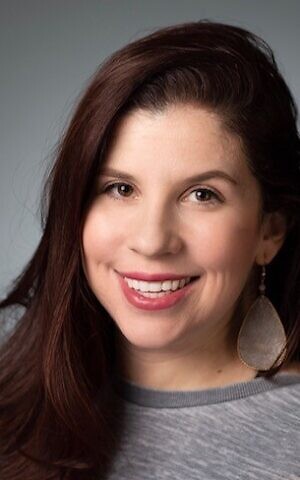
For that work, Harris was awarded the Mary & Max London People Power Award, which celebrates a hands-on, direct service volunteer who has launched a new initiative. As the Federation explains, in March 1990, the relatives of the Londons established the award after watching how their brother, Herbert, assisted in settling a branch of the family who had immigrated to the U.S. from Russia. “And through this work, he realized many families who had immigrated to Atlanta from Russia also needed assistance,” the family said. “As a result, we concluded that there are many individuals who, like Herbert, were willing to fulfill a need within our community. This award specifically honors those individuals who make their vision a reality and, in the process, make our community and our world a better place.”
Harris said that receiving the award was “completely unexpected because this program is fairly small and under the radar, but my hope is that this recognition brings JF&CS’ Artist Collective and the talents of adults with intellectual and developmental disabilities more into the spotlight.”
Calling the Atlanta Jewish community both diverse and vibrant, Harris said its biggest challenge is to encourage more people to get involved. “Very often you see the same people involved in multiple organizations, so I think organizations need to be innovative and identify or create opportunities that are attractive, accessible and inclusive. I think there is an ever-growing demand for volunteer opportunities for teens and families, and something we should invest in now to teach the next generation about tzedakah.”
Harris said her grandmother served as a great role model. “She was an extremely active member of the Jewish community in Mexico City and then in Houston where I was raised. She used to host various committee meetings for boards she sat on in her home and would invite me to attend or take me to special events as a child. I was often the only child in the room, but I think she wanted to show me first-hand what it meant to volunteer, both giving your time and talent.”
Mimi Hall, the Tikkun Olam/Community Impact Award
Another award recipient who launched a creative organization is Mimi Hall. The Tikkun Olam/Community Impact Award is given to a Jewish member of the community who has played a significant role in improving the world and has done innovative work at a nonprofit not directly associated with the Jewish community, according to the Federation.
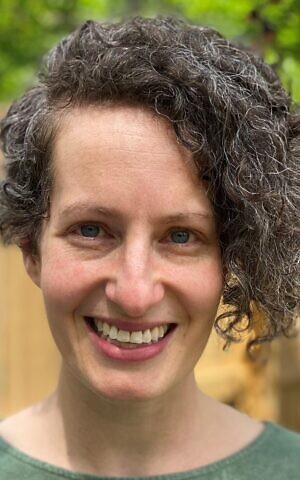
Hall was the founding board member of the Concrete Jungle, launched in 2009 with the idea of harvesting fruit and nuts from abandoned or underutilized urban trees. Concrete Jungle makes that produce a year-round source for food banks, shelters and people in need. The organization has grown into a food justice advocate. It organizes fruit-picking events and partners with other food justice organizations that mobilize volunteers to deliver food to needy families.
Citing her grandfather as her role model, Hall said giving to the community was “always part of my upbringing. I never thought you can not be involved in the Jewish community.” Prior to Concrete Jungle, Hall was active with JF&CS and worked for Hillels of Georgia for her first four years in Atlanta.
Her first boss at Hillel, Michael Rabkin, was her mentor. “He was a really solid leader and I have lots of empathy for him now that I’m working with entry-level people,” Hall said. She noted that Rabkin also had connections with food insecurity. “He started my journey of voting with my dollars, spending in the local food system.”
Hall said she was “flattered and honored” to receive the community award, which comes with a $500 stipend. “It honestly feels like a lifetime achievement award because I’ve been involved with Concrete Jungle for nine years.”
She brings to the community not only her generational values of giving, she said, but also the experience of being a Southern Jew. But she and her Atlanta-born husband consider themselves representative of a younger generation. They shul shop rather than pledge their allegiance to any particular synagogue, pointing out that it’s still possible to be connected to the Jewish community without that affiliation.
Josh Needle and Kimberly Reingold, Sylvia Newman Memorial Teacher of the Year Awards
Two teachers of supplemental Jewish education were awarded the Sylvia Newman Memorial Teacher of the Year Awards: Josh Needle from Gesher L’Torah and Kimberly Reingold from Congregation Or Hadash.
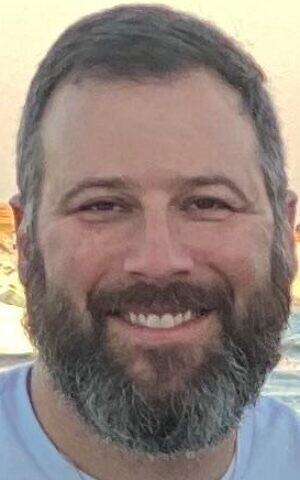
Josh Needle said he’s been active in the Alpharetta Jewish community since he moved there. “When I was asked to teach, I saw it as another way to engage and show my kids how to be part of the process.” He teaches seventh grade and is the baal tekiah (shofar blower) at Gesher L’Torah in Alpharetta.
As a teacher, he feels the biggest challenge is “us versus the internet. There are so many ways to acquire knowledge now, it is overwhelming, and finding the best way to engage our kids in Jewish learning is constantly changing. We have to be creative in our approach and embrace the challenge.”
He said his grandfather, who emigrated from Russia to Seattle and helped found several synagogues there, was his mentor. “He always led by example,” Needle said. “I hope that by investing my time with these students for the little time I have with them, that I am planting the seeds of success for future generations.”
The fact that he received this award, he said, “means that this community is open to trying new ways to reach students.”
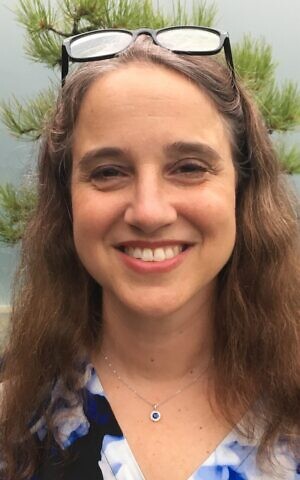
Emory University brought Reingold, the other award winner, to Atlanta, where she majored in math, her “passion in terms of teaching.” In fact, she said, teaching in a Jewish school was a “stretch” for her. “I chose to teach to feel connected to the community. I have a passion to be an educator and to give back to the community.” She pointed to her mother, who was “a good teacher for me. She listened to all my questions and tried to answer so that even as a child I could feel important.”
At Or Hadash, she teaches mostly fourth graders and some fifth. Reingold describes her teaching style as “non-traditional and creative. I like to think outside the box.” During the past pandemic year, she really had to improvise, teaching virtually, she said.
According to Reingold, with the internet, “we can learn anything at any time we want to.” Her teaching was “more about creating connections to the synagogue so the children will affiliate as adults. It’s all about connecting. My number one goal with every class I teach is wanting them to want to come. I feel really strongly about that: away from knowledge and more into connection.”
- Jan Jaben-Eilon
- News
- Community
- jewish federation of greater atlanta
- Eric Robbins
- The Gerald H. Cohen Community Development Award
- Jewish Federations of North America
- The Epstein School
- Marilyn Shubin Professional Staff Development Award
- Abe Schwartz Young Leadership Award
- Jada Garrett
- Adam Hirsch
- Jews of Color
- Ahavath Achim Synagogue
- Marcus Jewish Community Center of Atlanta
- Jewish Family & Career Services
- Atlanta Jewish Film Festival
- Lauren Harris
- Mary & Max London People Power Award
- Mimi Hall
- the Tikkun Olam/Community Impact Award
- Concrete Jungle
- Hillel of Georgia
- Michael Rabkin
- Congregation Gesher L'Torah
- Sylvia Newman Memorial Teacher of the Year Awards
- Josh Needle
- Kimberly Reingold
- Congregation Or Hadash
- Alpharetta
- Emory University




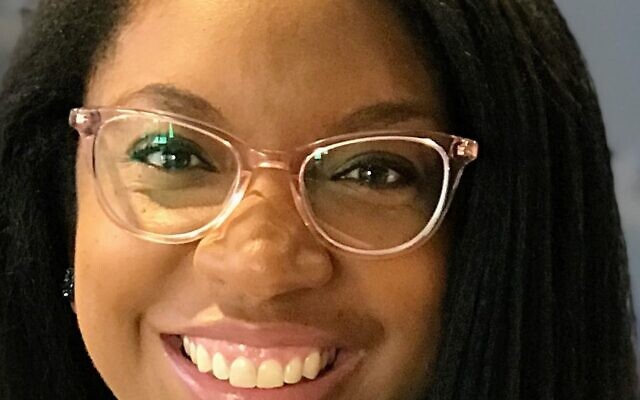
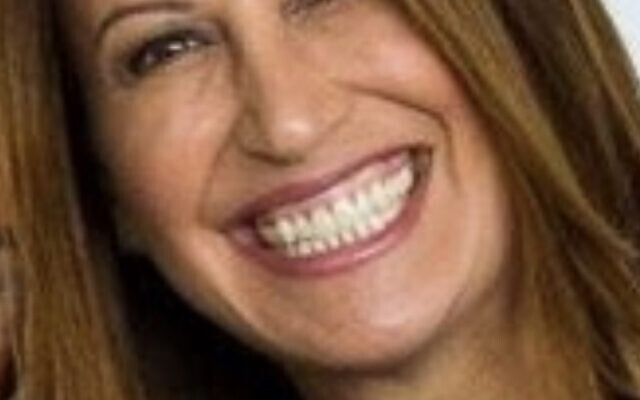
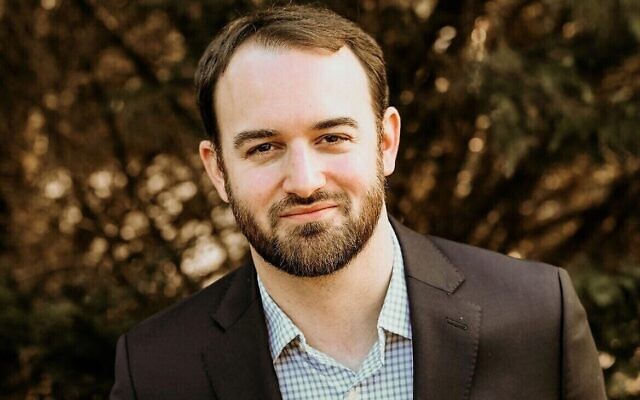
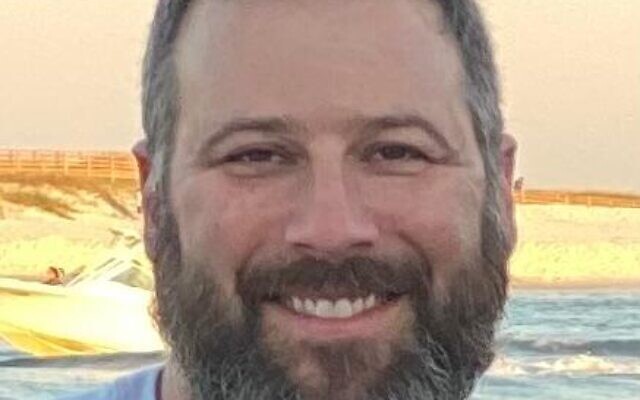
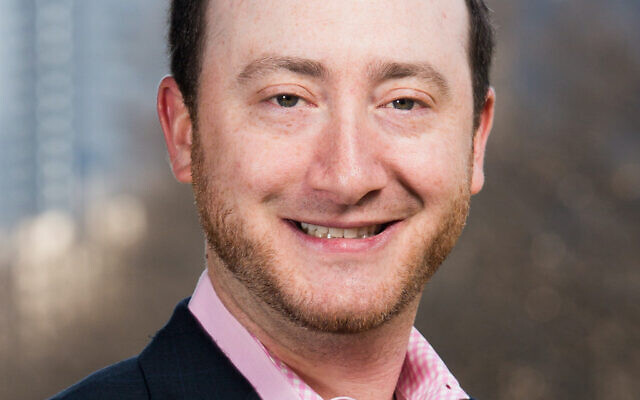
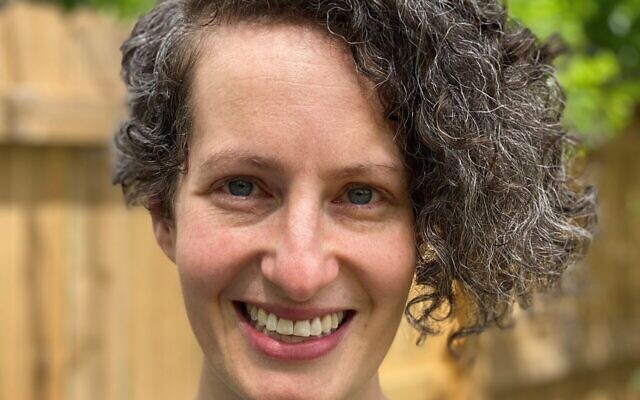
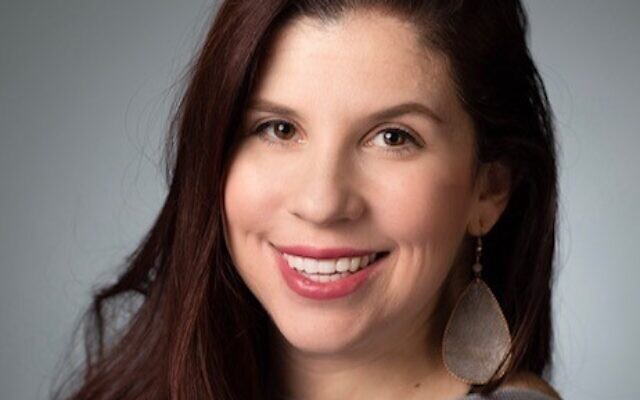
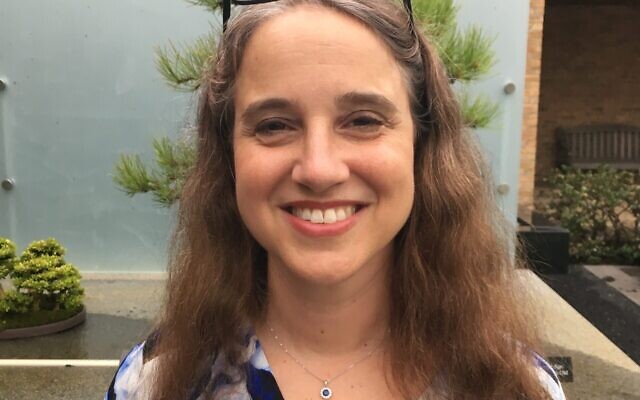
comments